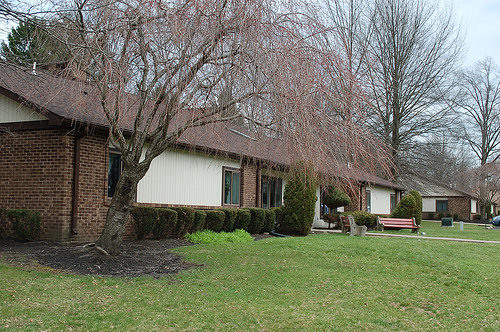Hudson County officials and residents are involved in a battle against a Gov. Chris Christie plan that would return severely disabled New Jersey residents housed in out-of-state facilities to New Jersey in what guardians are saying is a cost-saving, not a healthcare, move.
The governor’s Return Home New Jersey initiative would transfer these New Jersey residents to a state-licensed group home or other supervised dwelling. The administration says that the policy would save the state money because it would garner federal funding.
The move would bring matching Medicaid dollars, acknowledges Assemblywoman Valerie Vainieri Huttle, D-37, a Bergen County legislator and North Bergen native.
“But the increase for the medical care match is not sufficient to meet those who are medically fragile,” Vainieri said. “And on top of those dollars, there is no cost saving.”
The Return Home program would allocate money to support other disabled people, and would be better for patients, bringing them closer to home, according to the administration.
But guardians of patients from all over the state, including in Bayonne and Jersey City, contend that the plan would lessen the care their loved ones receive in states like Pennsylvania, and would take patients out of facilities they have been accustomed to for years.
Estimates are that the Return Home program would affect up to 500 hundred families.
Phyllis Sexton of Bayonne said that her daughter, Joanna, 34, is profoundly developmentally delayed and is not a candidate for a group home. She was diagnosed with a severe form of epilepsy and has seizures. She is also on five medications.
The Christie administration says the measure would save the state money because it would get more federal funding.
____________
“She has the body of a 34 year old, but the mind of a one year old,” Sexton said. “Doctors recommended for her to go into residence. She’s never going to get better. She would never be able to take care of herself.”
Sexton said that she admitted her daughter to Woods Services in Langhorne, Pa., because New Jersey said it had no place in the state for her. At Woods, her daughter has round-the-clock nursing care and doctors on staff.
Sexton said that bringing her back to the state would be detrimental to her daughter’s medical care and quality of life and that the Return Home program is purely about the bottom line.
“They’re doing this for the money,” Sexton said. “They get more from the federal government if they keep these people in New Jersey.”
Patricia Simpson of Jersey City feels that her son, Amir, 26, also at Woods, would receive inadequate care if brought back.
He is “autistic and non-verbal,” has had four surgeries, and his heart needs to be monitored 24/7 for arrhythmias.
“My son has elopement issues, like the boy in New York, Avonte Oquendo, who left home two years ago,” Simpson said. “He waits for the opportunity to trot away. He actually bolts. You don’t know when he will run.”
Her son needs to be in a controlled environment, like he now has at Woods.
“If he’s at home, he can figure how to get out of the house, no matter how many locks are on the door,” she said.
Vainieri Huttle and Assemblyman Carmelo Garcia, of Hoboken D-33rd, are sponsors of an Assembly bill which would modify the state’s measure.
“We are very opposed to what they are trying to do,” Garcia said. “Most people don’t realize the one thing you never want to do [to the developmentally disabled] is mess up their routine.”
Garcia said the Return Home New Jersey plan would have a negative effect on the people it is supposed to help.
“We’re trying to find a middle-ground solution to preserve and protect them,” he said.
Updated Plan
The state thought it had forged a compromise with the families of those patients early last month, when provisions of the Senate bill were reworked with the administration to allow those who had lived at least half of their lives in the out-of-state facilities to stay at them. But only about 60 patients fall into that category, according to some estimates, while several hundred would not.
Several other changes to the bill had the effect of “gutting it,” opponents of the Christie plan say. They include that the disabled person’s guardians live in New Jersey and that the out-of-state facility costs must be less than a placement offered by the state.
A second try at a compromise may be in the works, according to a person who attended the
March 19 meeting of the Morris County Arc, an organization dedicated to the care, support, and advancement of people with intellectual and related developmental disabilities and their families.
At the meeting, Elizabeth Shea, assistant commissioner of the New Jersey Department of Human Services, said the state is reviewing an updated plan, a source said. Shea said that details of the plan could not be discussed yet but that it will be released publicly on April 17.
The stakeholder families are requesting that the governor’s office allow them to participate in the process to assure that there is a transition plan that will work for everyone.
“We also need to ask that a copy of the plan be released at least ten days before submission so that the public can weigh in on the final document,” one family member said.
Joseph Passantino may be reached at JoePass@hudsonreporter.com.To comment on this story online visit www.hudsonreporter.com.
